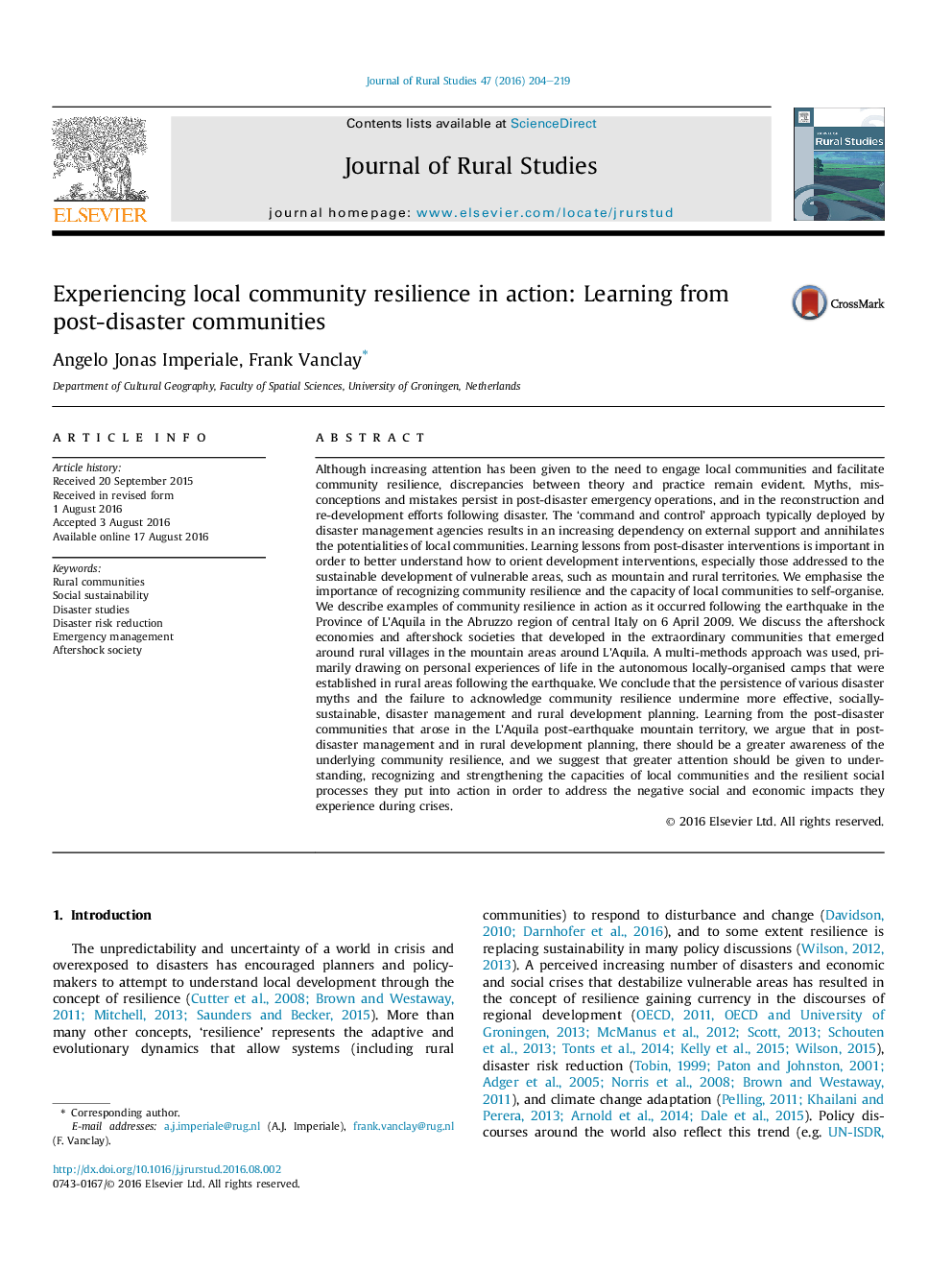| کد مقاله | کد نشریه | سال انتشار | مقاله انگلیسی | نسخه تمام متن |
|---|---|---|---|---|
| 6460267 | 1361825 | 2016 | 16 صفحه PDF | دانلود رایگان |
- Community resilience came into action after the 2009 earthquake in L'Aquila, Italy.
- Our findings dispel the disaster myths and contribute to understanding resilience.
- Community resilience is embedded in communities and emerges in times of crisis.
- There can be positive outcomes (e.g. togetherness, cooperation) even in disaster.
- Enabling the agency of community resilience contributes to sustainable development.
Although increasing attention has been given to the need to engage local communities and facilitate community resilience, discrepancies between theory and practice remain evident. Myths, misconceptions and mistakes persist in post-disaster emergency operations, and in the reconstruction and re-development efforts following disaster. The 'command and control' approach typically deployed by disaster management agencies results in an increasing dependency on external support and annihilates the potentialities of local communities. Learning lessons from post-disaster interventions is important in order to better understand how to orient development interventions, especially those addressed to the sustainable development of vulnerable areas, such as mountain and rural territories. We emphasise the importance of recognizing community resilience and the capacity of local communities to self-organise. We describe examples of community resilience in action as it occurred following the earthquake in the Province of L'Aquila in the Abruzzo region of central Italy on 6 April 2009. We discuss the aftershock economies and aftershock societies that developed in the extraordinary communities that emerged around rural villages in the mountain areas around L'Aquila. A multi-methods approach was used, primarily drawing on personal experiences of life in the autonomous locally-organised camps that were established in rural areas following the earthquake. We conclude that the persistence of various disaster myths and the failure to acknowledge community resilience undermine more effective, socially-sustainable, disaster management and rural development planning. Learning from the post-disaster communities that arose in the L'Aquila post-earthquake mountain territory, we argue that in post-disaster management and in rural development planning, there should be a greater awareness of the underlying community resilience, and we suggest that greater attention should be given to understanding, recognizing and strengthening the capacities of local communities and the resilient social processes they put into action in order to address the negative social and economic impacts they experience during crises.
Journal: Journal of Rural Studies - Volume 47, Part A, October 2016, Pages 204-219
